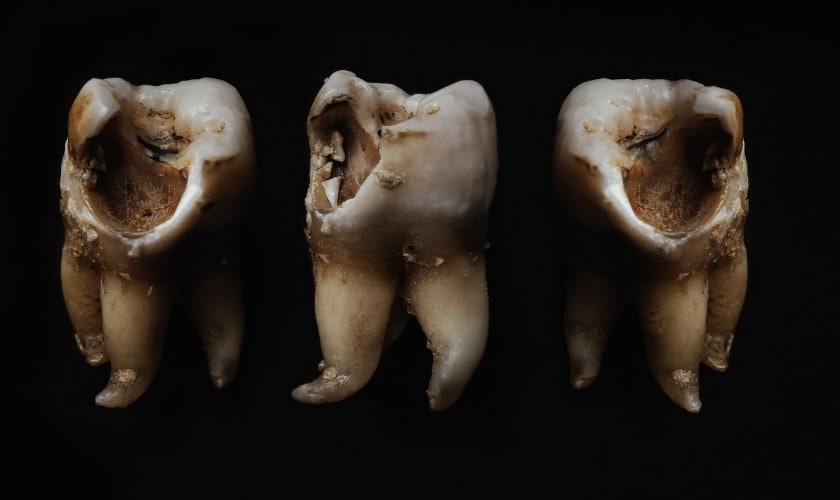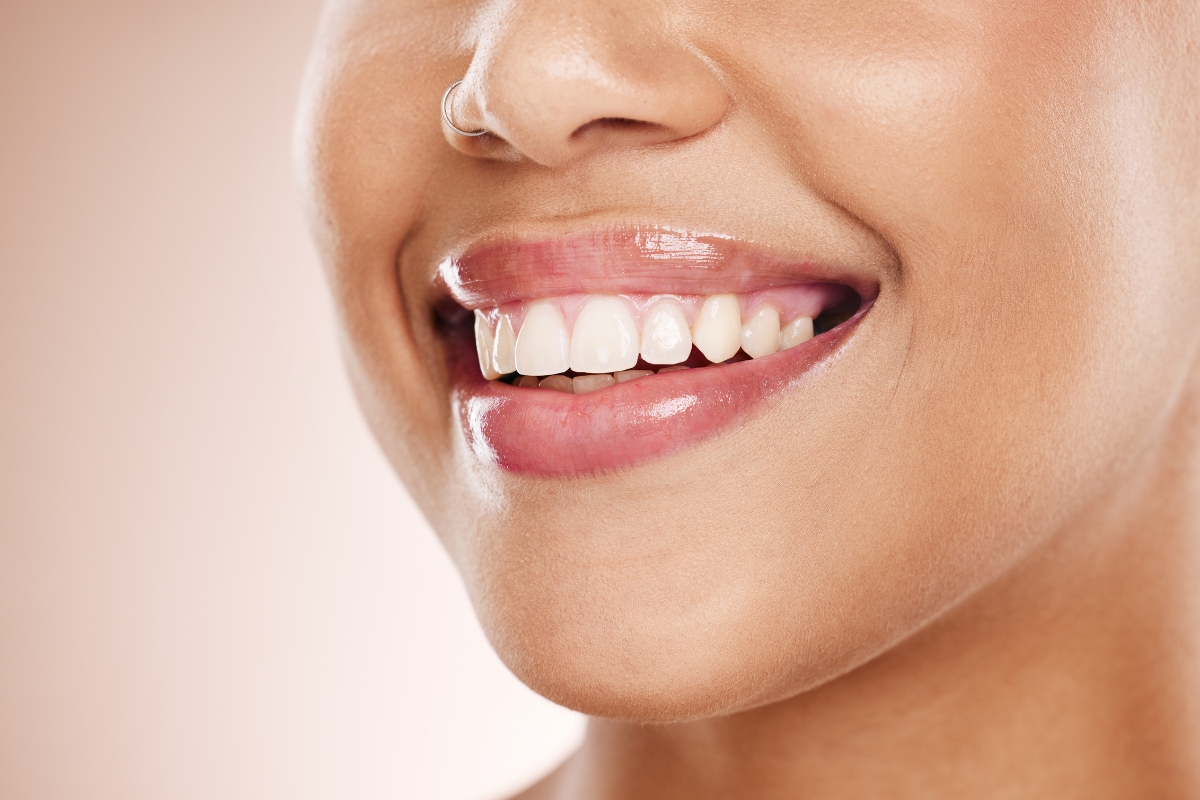Can Black Spots On Teeth Be Removed?

Teeth with black spots may be the result of concern for many individuals, as they not only affect the appearance of your smile but may also indicate underlying dental issues. These spots can appear on the surface of the teeth and range from tiny specks to larger areas of discoloration.
Understanding the causes of these black spots and the accessibility of treatment alternatives is crucial to preserve good oral health. In today’s blog, we’ll explore whether black spots on teeth can be removed and how general dentistry plays a major role in addressing this common issue.
What Causes Black Spots on Teeth?
Before discussing removal, it’s important to understand what causes these black spots. Several factors can lead to the development of black spots on teeth, including:
- Tooth Decay: Among the most frequent reasons for black spots is tooth decay. Cavities may develop as a result of plaque accumulation on the teeth. As the deterioration continues, it may lead to the affected area to turn black.
- Tartar Buildup: Tartar, also known as calculus, is hardened plaque that has not been removed by brushing and flossing. Over time, tartar can become dark in color and create black spots on the teeth, particularly along the gumline.
- Staining: Teeth stains can be caused by specific meals and drinks, including dark-colored fruits, red wine, tea, and coffee. Using tobacco products or smoking can also lead to black or dark brown spots on the teeth.
- Restorative Materials: Some dental fillings and crowns, particularly those made from amalgam, can cause a dark appearance on the tooth surface, which may resemble black spots.
- Injury or Trauma: Teeth that have experienced trauma may develop black spots as a result of internal bleeding or damage to the tooth’s pulp.
Can Black Spots Be Removed?
The removal of black spots on teeth depends on the underlying cause. Here are some common methods used in general dentistry to remove or treat black spots:
1. Professional Dental Cleaning
If plaque or tartar buildup is causing the black spots, a professional dental cleaning can effectively remove them. Using specialized instruments, the dentist or dental hygienist will remove tartar and plaque from the surface of the teeth, particularly in hard-to-reach areas. This process not only removes black spots but also helps prevent further buildup and decay.
2. Tooth Whitening
For black spots caused by staining, tooth whitening treatments may be effective. Whitening procedures, done either in-office or with take-home kits, use bleaching agents to lighten teeth color. While whitening is generally more effective for surface stains, it may not completely remove deep or intrinsic stains.
3. Dental Fillings and Crowns
If tooth decay causes a black spot, the dentist will remove the decayed area and place a dental filling. If the decay is severe, they may restore the tooth’s function and appearance with a crown. Modern fillings and crowns are made from composite resin or porcelain, materials that can be color-matched to your natural teeth, minimizing the risk of future discoloration.
4. Enamel Microabrasion
Enamel microabrasion removes superficial stains and discoloration from the tooth’s surface as a cosmetic dental procedure. During this procedure, a dentist uses a mixture of abrasive compounds and acid to gently remove a thin layer of enamel, effectively eliminating the black spots. This procedure is best suited for surface-level discoloration and is often combined with tooth whitening for optimal results.
5. Root Canal Therapy
In cases where the black spot is caused by internal damage or decay that has reached the pulp of the tooth, root canal treatment can be required. This process includes cleaning the interior of the tooth, sealing it, and extracting any diseased or damaged pulp. with a filling or crown. After a root canal, the tooth may darken, but you can often correct this with internal bleaching or a crown.
Preventing Black Spots on Teeth!
Prevention is always better than cure when it comes to black spots on teeth. Here are some tips to help you maintain a bright, healthy smile:
- Maintain Good Oral Hygiene: To remove plaque and prevent tartar accumulation, brush your teeth at least twice a day with fluoride toothpaste and floss every day.
- Limit Stain-Causing Foods and Beverages: Reduce the foods and beverages you consume that might discolor your teeth, such as coffee, tea, red wine, and dark berries. In the event that you do eat these things, wash your mouth with water afterwards to minimize staining.
- Quit Smoking: One of the main causes of tooth discoloration, so quitting smoking can significantly enhance the general health of your oral cavity and the look of your teeth.
- Visit Your Dentist Regularly: Regular check-ups and cleanings are essential for preventing and addressing black spots. Your dentist may detect such problems early on and offer appropriate treatments to keep your teeth healthy.
- Use a Straw: When drinking beverages that can stain your teeth, using a straw can help reduce contact with your teeth, minimizing the risk of discoloration.
Black spots on teeth can be concerning, but they are often treatable and preventable. Whether tooth decay, tartar buildup, or staining causes the spots, general dentistry offers various treatment options to restore the appearance of your teeth.
By maintaining good oral hygiene, making mindful dietary choices, and visiting your dentist regularly, you can prevent black spots from forming and keep your smile bright. If you notice black spots on your teeth, don’t hesitate to seek advice from your dentist to determine the best course of action for removal and prevention.
Recent Posts

How Age Impacts Your Cosmetic Dentistry Options

What Happens If You Ignore a Broken or Cracked Tooth?

Can Teens Get Invisalign? What Parents Should Know

What is the Fastest Way to Whiten Teeth Before a Wedding in Havertown?


